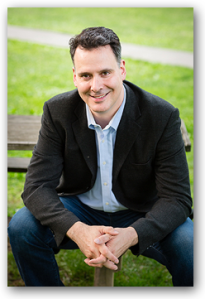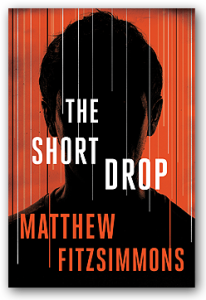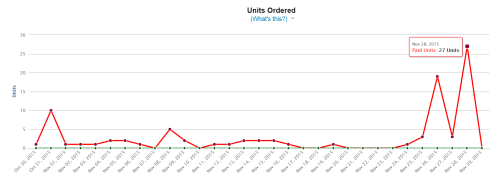Hi, everyone!
You may recall that Matthew FitzSimmons unexpectedly stopped by this blog a couple of weeks ago, to explain how The Short Drop made it to #1 in Kindle Store and gathered over 1,300 reviews weeks before its release on 1 December (it’s now well over 1,800 reviews with average 4.7 star rating!). You may recall that his debut novel was one of November offerings in Kindle First program, and that Matthew was kind enough to not only explain the ins and outs of Kindle First, he even agreed to answer your questions about his experience.
Thank you all who have contributed to the questions below. Without further adieu, here are your long-awaited answers!
In your bio you mention the first novel you wrote, which you would rather forget. Can you tell us a bit more about that experience? What made you want to try again? What kept you going?
Ah the dreaded first book. Well, I spent four years on it. It was meant to be this lyrical, personal meditation on life, the universe and everything – my “great American novel.” It was none of those things. I was young and undisciplined. I worked jobs that I loathed to support my writing. I lost an early version when my hard drive died – too naïve to have backed it up. And there came a point, when I began to suspect that it wasn’t very good. And shortly thereafter, I simply began to hate it. I hated writing. I hated what I’d written. It was self-indulgent, pretentious and achingly “literary.” Actually, in retrospect, there were some quite good bits, but my God they were buried under acres of manure. I decided I was done, done with writing, and that I’d wasted quite enough time on this daydream.
Eventually, I became a teacher, which I loved and was good at. I taught books, theater and coached sports – all in the same day. It was a marvelous job. I did that for eleven years. And then, five or six years ago, I began noodling about with writing again. I’m don’t remember why only that I didn’t tell anyone about it. Small things – a blog that no one read. Bits and pieces of story ideas…that no one read. I was very happy about that – the no one reading it part. It was just something for me. Then I had a bit of a personal crisis, and I began writing more seriously largely because it offered an escape from my day-to-day struggles. Somewhere along the way, I had learned to love writing again. I was older and disciplined. I backed up my hard drive like it was my job. And, to my surprise, what I wrote didn’t seem half bad. When I was halfway through, I showed it to a few friends who I knew wouldn’t be needlessly kind. “Would you keep reading if I finished it,” I asked. “Yes,” they all said. So I did.
You have quite a diverse education and background – from B.A. in Psychology, to theatre, to teaching English literature. How did those experiences, combined with living in Great Britain and China, influence you as a writer? Have you used any of your personal experiences as material for the plot or characters in your stories?
I’ve come to realize that all of my experiences – theater, a degree in psychology, teaching, coaching – have been, in one way or another, about understanding people. Collectively it is the foundation of my empathy. The same for growing up and living abroad; it’s all helped me to put myself in another person’s shoes. And if you can’t do that, then all your characters wind up sounding like variations of yourself.
What is your writing routine? Is writing now your full-time job, or are you still teaching? Do you read broadly, or do you confine your reading to certain genres? Who are your favorite contemporary authors?
Writing has been my full-time job since June. I write six days a week from seven to four. I write new pages in the afternoon and then edit them the following morning. I was writing seven days a week, but I found that if I didn’t take a day off that my brains turned to porridge. I read broadly although I read more thrillers now “for work,” than I once did. But I think it’s essential to read outside of ones genre, because genre can easily become a closed system and then everyone begins to sound like everyone else. It’s the beginning of formula, and formula is the beginning of the end of anything good. Among contemporary authors, I’m an enormous fan of William Gibson, Kazuo Ishiguro and Don DeLillo. Ian McEwan. And for my money, Daniel Woodrell is the best American thriller writer working today.
Your first published novel The Short Drop is a thriller, complete with political intrigue, murder for hire, missing people, computer hacking, and a web of lies. How did you come up with the idea for this story? Did you use early/advanced readers for Short Drop? If so, how did they affect the story?
I started from a theme rather than a story. I wanted to write about the role of our past on our present. The idea of finding closure was near and dear to my heart at that time, and while Gibson Vaughn’s past is nothing like my own, I related to his desperate need for answers. The story itself, I built in a slow process of addition and subtraction. For example, Gibson’s hacker background was a late arrival, and originated from a conversation with a friend who works in computer security. One night at dinner, he told me about the Stuxnet virus, which was used to crash a nuclear reactor in Iran. It’s an unbelievable story, and I thought it would be interesting to write a hacker character that was truthful to how computers actually work.
Yes, I had an incredible group of advanced readers. Having readers who will give you honest feedback was critical to my success, but it takes time to cultivate them. A reader needs to trust that if they tell you the truth that you aren’t going to throw a tantrum. It was very important to me that the book appeal to both men and women, so I purposefully sought out women to read early drafts. Jenn Charles, for example, underwent a thorough rewrite after a woman, who had served in the army, took me to task for how I’d portrayed certain facets of her personality. She made great points, and helped me understand what the experience of being a woman in a male dominated field experiences. I adjusted the character accordingly, and Jenn Charles is a much more rounded character as a result.
The Short Drop has been complimented for well-developed characters, which is often unusual in thriller or action-driven writing. Would you say it is more plot-driven or character-driven?
That’s the compliment that meant the most to me, and I’d like to say that the book relies on plot/character in equal measure. Without character, the plot and action rarely have any impact on me. There’s an old cartoon called Bambi vs. Godzilla that illustrates this principle perfectly. In the cartoon, Bambi is grazing in a field. Out of nowhere, Godzilla’s foot crushes Bambi. End of cartoon. It’s so shocking and unexpected that we laugh rather than cry. An adorable woodland creature has just been heartlessly crushed by a gigantic, nuclear lizard, and we burst out laughing. Now part of the humor is the inherent mismatch of opponents coupled with the suddenness of Bambi’s death, but I think the cartoon also lampoons the laziness of a lot of action thrillers that traffic in murder and mayhem without investing the time to make the characters real. As a result, when the murder/mayhem comes along, the audience is able to stand at an emotional remove and simply spectate rather than feel invested in the outcome on anything but a surface level.
What is the one most surprising thing you’ve learned about the traditional publishing industry? What was it like working with Amazon’s own Thomas & Mercer? Have you ever considered self-publishing?
When I finished my book, I looked at the pros and cons of self versus traditional publishing. There are merits to both, and I decided to try my luck at finding an agent first, with the knowledge that self-publishing was always there to fall back on. I chose that path because I’m essentially lazy about things that I don’t love to do. I love to write; I do not love marketing or any of the other critical work of audience building that the self-published author must do and do well if they hope to succeed. There are self-published authors, Hugh Howey is the obvious example, who are brilliant at it. I had to be honest with myself that I would not be successful following his example.
I was surprised at how “small” an industry publishing is in the United States. Everyone knows everyone else and relationships are important. There is tremendous fluidity among the publishing house and the larger agencies. It’s not uncommon for agents to become editors and vice versa, or for staff to move among the various publishing houses. So protect your reputation and don’t burn bridges ever.
As for my experience with Thomas & Mercer, it has been tremendous. They are innovative and collaborative in a way that I’ve found very exciting. It’s fair if you take this with a grain of salt, but I feel incredibly fortunate to work with this group of people.
Your story is an inspiration to all aspiring writers and authors. Can you share with us the moment when you’ve realized that The Short Drop became or was about to become a huge bestseller? How did you feel?
I think it was the moment that I asked my agent, “is this normal?” I really didn’t know since I have nothing to compare it against. He said, “no, there is nothing normal about this.” He isn’t one for hyperbole so that kind of opened my eyes.
How did it feel? Relief followed swiftly by elation. It’s like the first time you ask someone out – you don’t have enough experience to know if they like you or not. So you simply put yourself out there and hope against hope that you aren’t scarred for life by their cruel rejection. And that feeling, when they actually say, “yes” … well, it’s brilliant. And then it’s over, and everything has changed and nothing. My desk is still in the same spot, and my chair stills squeaks when I rock back in it. I still have a book to finish, and I don’t get outside as much as I ought to do. But sometimes, I peek at the numbers just to confirm that I haven’t made it all up.
Congratulations again on making it to #1 in Kindle Store and staying at the top for such a long time. You’ve mentioned that Kindle First was a godsend. What marketing strategies are in place for The Short Drop now that it is available to the general public?
Thank you! The advantage and limitation of having a publisher who is also your primary bookstore is that you’re putting all of your eggs in one basket. The tools that Amazon Publishing have at their disposal in the digital realm are unique and incredibly effective. Their ability to direct market to book fans through Amazon.com is unparalleled. For example, the “daily deal” when they drop a book’s price for twenty-four hours is a great tool to boost sales/awareness. However, on the flip side, it can be difficult to reach readers who are not Amazon customers, and traditional publishers are still much better at reaching them. So I’m working with a public relations firm to raise awareness of the book outside of Amazon’s channels. I’d like to say I have a deep understanding of how it works, but mostly I work on the next book and they send me emails telling me what to do next. It’s rather lovely actually.
Is it hard to concentrate on writing the sequel with so much going on at the moment? When can we expect to see it in print?
I’d be lying if this has challenged my focus for the past few weeks, but I’m learning to tune it out while I’m working. IF that doesn’t work, I may throw my router out the window. The draft of my second book, Poisonfeather, is due early next year, and the plan is to publish in October, ’16 – which feels very, very soon.
And finally, do you have any advice for aspiring writers and authors?
There’s an old adage that goes, “write what you know.” It once possessed a kernel of truth, but like many aphorisms, it’s been stripped of its context and become terrible, limiting advice. Writing only what you know would lead to a world without science fiction and without fantasy. Jules Verne didn’t write what he know – not unless he was secretly a submarine commander, a time traveler and an astronaut. He made it up. You don’t need to be a retired lawyer to write legal thrillers, and you don’t need to be a decorated Navy Seal to write a military thriller. I’m sure it helps, but it’s not essential. I have no military background, and I’ve never hacked anything in my life. For me, the best part of writing has been the opportunity to research and talk to people with different life experience from my own. So don’t only write what you know. Actually, I think I’ll offer my own aphorism in its place: Don’t write what you know, write what you want to know.






